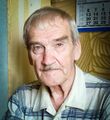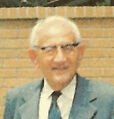Template:Selected anniversaries/September 7: Difference between revisions
No edit summary |
No edit summary |
||
| (3 intermediate revisions by the same user not shown) | |||
| Line 3: | Line 3: | ||
||1559: Robert Estienne dies ... printer and scholar. Pic. | ||1559: Robert Estienne dies ... printer and scholar. Pic. | ||
||1695: Henry Every perpetrates one of the most profitable pirate raids in history with the capture of the Grand Mughal ship Ganj-i-Sawai. In response, Emperor Aurangzeb threatens to end all English trading in India. Pic. | ||1695: Henry Every perpetrates one of the most profitable pirate raids in history with the capture of the Grand Mughal ship Ganj-i-Sawai. In response, Emperor Aurangzeb threatens to end all English trading in India. Pic. | ||
| Line 16: | Line 14: | ||
||1799: Louis-Guillaume Le Monnier dies ... botanist and physicist. No pic online. | ||1799: Louis-Guillaume Le Monnier dies ... botanist and physicist. No pic online. | ||
||1799: | File:Jan Ingenhousz.jpg|link=Jan Ingenhousz (nonfiction)|1799: Physiologist, biologist and chemist [[Jan Ingenhousz (nonfiction)|Jan Ingenhousz]] dies. Ingenhousz discovered photosynthesis, as well the fact that plants, like animals, have cellular respiration. | ||
|| | File:August Kekulé.jpg|link=August Kekulé (nonfiction)|1828: Organic chemist [[August Kekulé (nonfiction)|Friedrich August Kekulé]] born. Kekulé will be one of the most prominent chemists in Europe, especially in theoretical chemistry, and the principal founder of the theory of chemical structure. | ||
||1836: August Toepler born ... physicist and academic. Pic. | ||1836: August Toepler born ... physicist and academic. Pic. | ||
| Line 48: | Line 46: | ||
||1923: The International Criminal Police Organization (INTERPOL) is formed. | ||1923: The International Criminal Police Organization (INTERPOL) is formed. | ||
||1925: Robert Jastrow born ... astronomer and planetary physicist. He was a NASA scientist, popular author, and futurist. Pic search | ||1925: Robert Jastrow born ... astronomer and planetary physicist. He was a NASA scientist, popular author, and futurist. Pic search. | ||
File:Philo T Farnsworth.jpg|link=Philo Farnsworth (nonfiction)|1927: The first fully electronic television system is achieved by inventor [[Philo Farnsworth (nonfiction)|Philo Farnsworth]]. | File:Philo T Farnsworth.jpg|link=Philo Farnsworth (nonfiction)|1927: The first fully electronic television system is achieved by inventor [[Philo Farnsworth (nonfiction)|Philo Farnsworth]]. | ||
| Line 81: | Line 79: | ||
||1991: Edwin McMillan dies ... physicist and chemist, Nobel Prize laureate. Pic. | ||1991: Edwin McMillan dies ... physicist and chemist, Nobel Prize laureate. Pic. | ||
||2004: Ralph Eugene Lapp dies ... nuclear physicist and author who began his career in high-energy physics research with Arthur H. Compton. Lapp then worked at Chicago on the Manhattan Project. With 69 others, he signed Leo Szilard’s 17 Jul 1945 petition to President Truman, the month before the attack on Hiroshima. They urged that Japan should have an opportunity to surrender before use of the atom bomb. (Nevertheless, the actual attack was by surprise.) After the war, he researched the results in Japan. Lapp lectured across the U.S. He wrote 22 books on nuclear safety, including the dangers of nuclear fallout in The Voyage of the Lucky Dragon (1958). A Post book reviewer in 1956 called him “a one-man atomic truth squad and nuclear lie detector.” Pic: http://www.hrc.utexas.edu/multimedia/video/2008/wallace/lapp_ralph_t.html See also https://www.c-span.org/video/?288934-1/mike-wallace-interview-ralph-lapp https://www.youtube.com/watch?v=G2-tnC5doaI | ||2004: Ralph Eugene Lapp dies ... nuclear physicist and author who began his career in high-energy physics research with Arthur H. Compton. Lapp then worked at Chicago on the Manhattan Project. With 69 others, he signed Leo Szilard’s 17 Jul 1945 petition to President Truman, the month before the attack on Hiroshima. They urged that Japan should have an opportunity to surrender before use of the atom bomb. (Nevertheless, the actual attack was by surprise.) After the war, he researched the results in Japan. Lapp lectured across the U.S. He wrote 22 books on nuclear safety, including the dangers of nuclear fallout in The Voyage of the Lucky Dragon (1958). A Post book reviewer in 1956 called him “a one-man atomic truth squad and nuclear lie detector.” Pic: http://www.hrc.utexas.edu/multimedia/video/2008/wallace/lapp_ralph_t.html See also https://www.c-span.org/video/?288934-1/mike-wallace-interview-ralph-lapp https://www.youtube.com/watch?v=G2-tnC5doaI | ||
||2013: Physicist and academic Albert Allen Bartlett dies ... lectured on Arithmetic, Population, and Energy.[3][4] Bartlett regarded the word combination "sustainable growth" as an oxymoron, since even modest annual percentage population increases will inevitably equate to huge exponential growth over sustained periods of time. He therefore regarded human overpopulation as "The Greatest Challenge" facing humanity. Pic. | ||2013: Physicist and academic Albert Allen Bartlett dies ... lectured on Arithmetic, Population, and Energy.[3][4] Bartlett regarded the word combination "sustainable growth" as an oxymoron, since even modest annual percentage population increases will inevitably equate to huge exponential growth over sustained periods of time. He therefore regarded human overpopulation as "The Greatest Challenge" facing humanity. Pic. | ||
</gallery> | </gallery> | ||
Latest revision as of 12:49, 7 February 2022
1799: Physiologist, biologist and chemist Jan Ingenhousz dies. Ingenhousz discovered photosynthesis, as well the fact that plants, like animals, have cellular respiration.
1828: Organic chemist Friedrich August Kekulé born. Kekulé will be one of the most prominent chemists in Europe, especially in theoretical chemistry, and the principal founder of the theory of chemical structure.
1914: Physicist and philosopher James Van Allen born. The Van Allen radiation belts will be named after him, following their discovery by his Geiger–Müller tube instruments aboard satellites in 1958.
1927: The first fully electronic television system is achieved by inventor Philo Farnsworth.
1930: Mathematician Kurt Godel announced his famous Incompleteness Theorem -- that there are true but unprovable statements in arithmetic -- in a discussion on the foundations of mathematics organized by the Vienna Circle.
1939: Soviet Air Defense office Stanislav Yevgrafovich Petrov born. Petrov will became known as "the man who single-handedly saved the world from nuclear war" for his role in the 1983 Soviet nuclear false alarm incident.
1985: Mathematician George Pólya dies. He made fundamental contributions to combinatorics, number theory, numerical analysis and probability theory.






